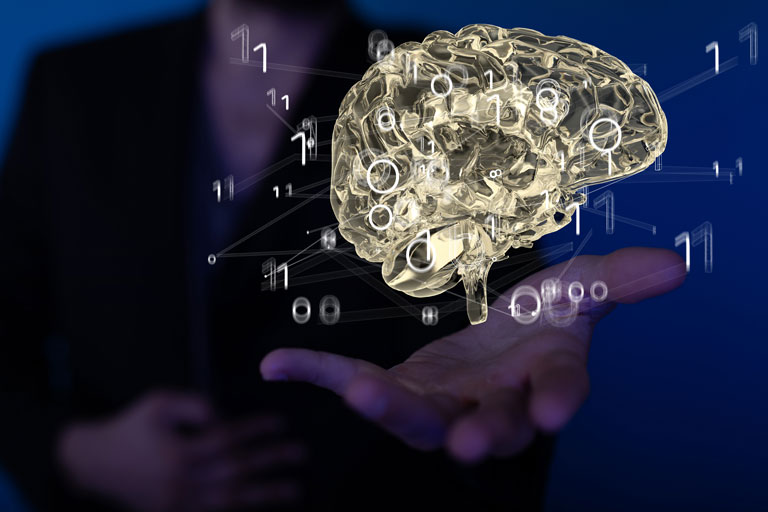Alzheimer's disease is a debilitating condition impacting over 5 million Americans, yet there is still no definitive reason to explain why it occurs.
To gain a better understanding of complex diseases and other neurological conditions, like Alzheimer's disease, IUPUI's Jingwen Yan is developing machine learning models to make predictions and look for associations in data. Her research provides a basis for integrative analysis that can offer insight into how these diseases function.
"By leveraging the data, we can capture the patterns and help identify the reasons and causes why some people develop Alzheimer's in the first place," Yan said. "We could look at different subgroups of patients and may be able to say that a person develops Alzheimer's because of a genetic variation or an incorrect chemical reaction. We could then offer a personalized treatment plan based on their specific cause."
Brain imaging is one way Yan and her collaborators, including IU Center for Neuroimaging Director Andrew Saykin, are working to help doctors predict which patients will develop Alzheimer's disease. By scanning the brains of both Alzheimer's patients and healthy individuals using tests such as MRIs and PET Scans, they can collect specific information to input into the machine learning models. Ultimately, they hope the model can be deployed in a hospital setting.
"The big question so many people have is when they will develop Alzheimer's disease, rather than if they will get it or not," Yan said. "That is a question we cannot answer right now, so we are trying to build models that can provide insight on timing, but it is not easy to do."
Part of Yan's work involves looking at gene expression and DNA to predict the likelihood someone will develop Alzheimer's disease. Because it is highly inheritable, Yan said much of why a person develops Alzheimer's is based on their DNA.
"If this disease has manifested as a brain disease and is known to be largely decided by DNA, we want to see what part of the DNA is responsible for those brain changes," Yan said. "Alzheimer's patients have really high brain atrophy, causing their brains to shrink and not function well. We want to see exactly which part of their DNA ultimately leads to this disease."
Another area in which Yan uses brain imaging and genetic association is with opioid use in expecting moms. Together with collaborators at the IU School of Medicine, Yan looked for associations between DNA and newborn babies' brain scans, examining the babies' brain connection activities and their brain networks. They could then predict whether babies with moms who used opioids will have less brain connection than babies born to moms who did not use opioids.
As part of an NSF CAREER award received in 2020, Yan is also working to develop models for integrative predictive modeling of incomplete -omics data. While large data exists for diseases like Alzheimer’s, it is often incomplete. She is examining how to handle this issue to allow biomedical researchers to gain more insights from the rapidly growing, but imperfect, data.
According to Yan, artificial intelligence, and specifically machine learning, will continue to play an integral role in her research activities at IUPUI.
"Since brain imaging is the frontier application of artificial intelligence, my collaborators and I are very enthusiastic about its uses," Yan said. "We all agree that the potential of AI is way beyond the imaging, but in many biomedical problems as well. To this end, IU has a unique strength since we have both researchers interested in AI techniques and researchers with data-intensive biomedical problems."



